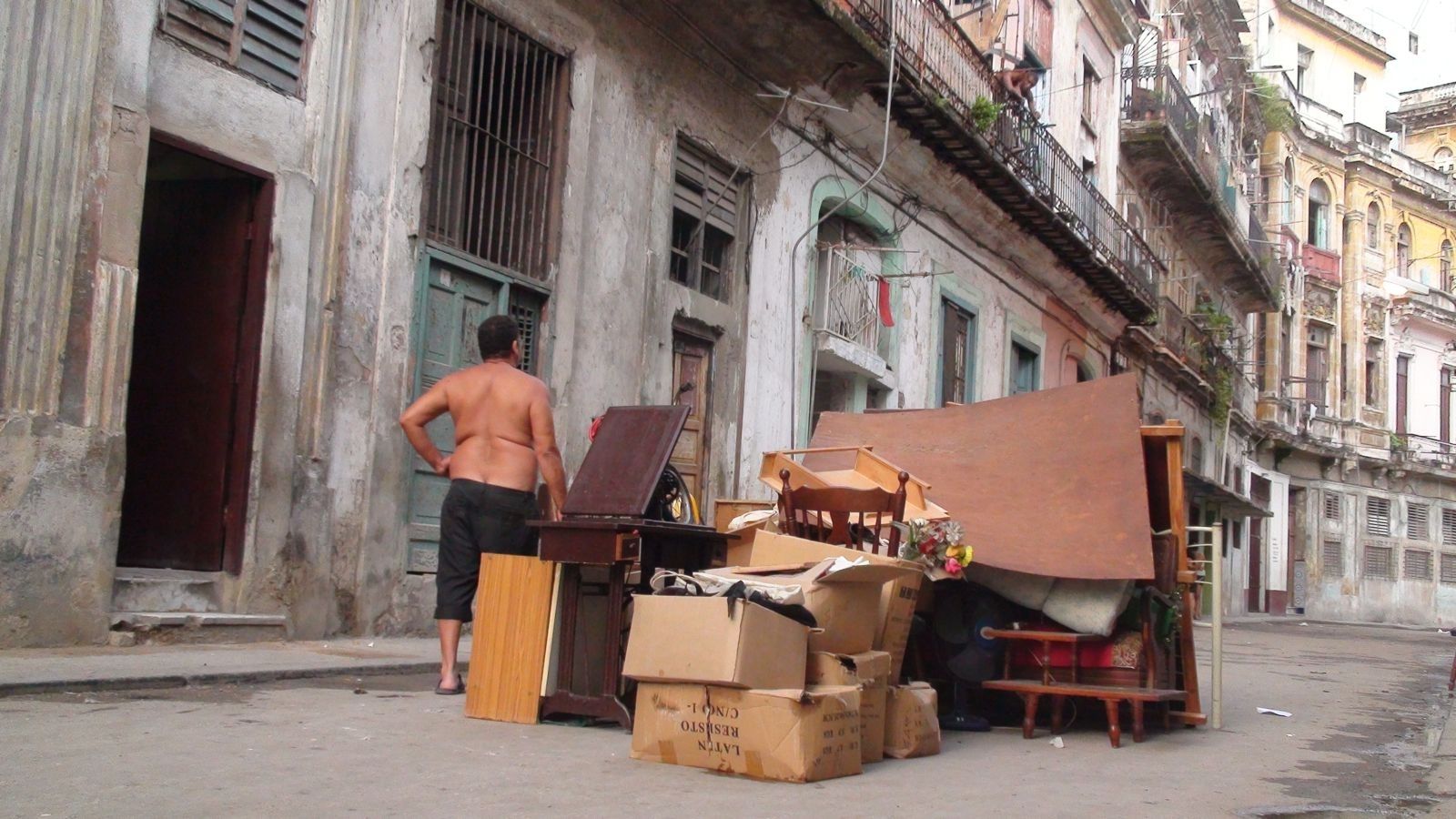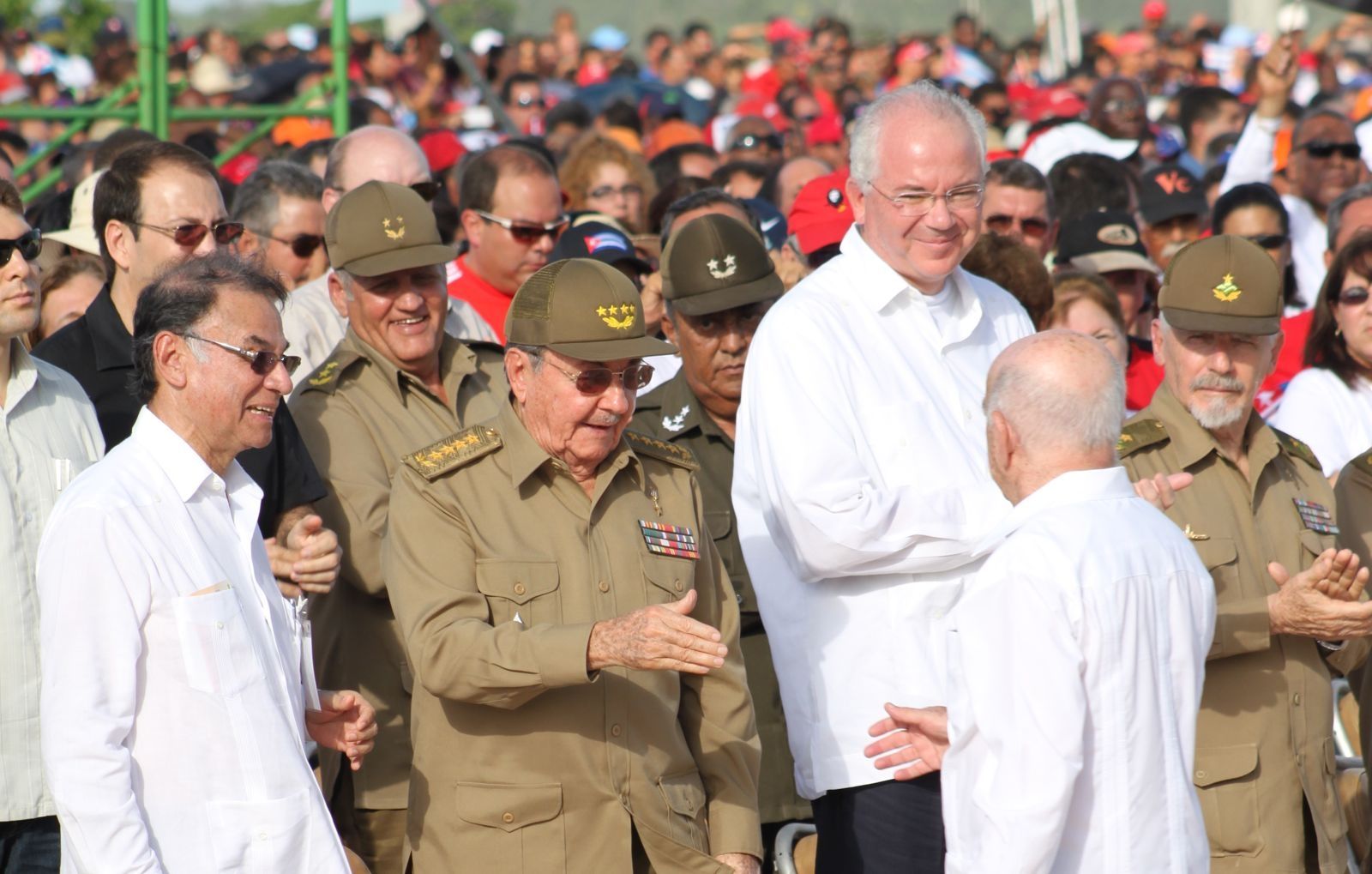Angel Silveda's third-floor apartment collapsed without warning just after midnight, sending his bed, kitchen table, vintage Singer sewing machine and other worldly possessions plunging to the ground. Silveda, 50, was next door on the July evening when it took place. "No one was hurt," he recounted, "No one was in the apartment." The first and second floors were vacant, as well. Residents had abandoned them months earlier, fearing the old colonial building might collapse.
Silveda, a bicycle taxi driver, decided to hang tight, as he and his wife, Virgen, 50, had nowhere else to go. "Housing is this country's biggest problem," Silveda explained.
After the collapse, Silveda spent the night crawling into the shell of his old apartment, trying to pull furniture and other items from the tangled heap of debris. After stacking his salvaged belongings in the middle of San Miguel street in Old Havana, he called authorities to report the incident. "The government has to find me a place to live and it has to be today," he said, appearing remarkably calm just hours after the episode.
In April 2008, Cuba's Juventud Rebelde newspaper reported that Havana's buildings were falling down at a rate of one to three per day and about 1,000 buildings containing nearly 26,000 residents were in a "critical state." Some critics of the socialist government claim the collapses, which kill dozens of people every year around the country, are part of a broader pattern of deterioration in Cuba. They say the simple truth is that socialism doesn't work. Wages are so low - just $15 to $20 per month for most jobs - that people have no incentive to work.
Yet officials deny such assertions, blaming most of their problems on the so-called U.S. embargo, global economic forces and three powerful hurricanes that swept through Cuba in 2008. Despite it all, they they are not rattled or frantic. They are calm - a little bit like Angel Silveda. President Raul Castro has made it clear that reviving the economy is the key to the survival of the Cuban revolution.
"We have to end forever the notion that Cuba is the only country in the world where you can live without working," Castro told Cuba's National Assembly on Aug. 1, pinpointing productivity as a primary issue. And to encourage more people to join the workforce, Castro said, the government plans on allowing more workers to start their own small businesses. But he vowed to stick with socialism, denouncing the viability of "capitalistic recipes" as models for economic reform. Economic Minister Marino Murillo publically stated that the government is merely "updating" its socialist model, saying, as quoted by the BBC, "It's being studied and with great calm."



